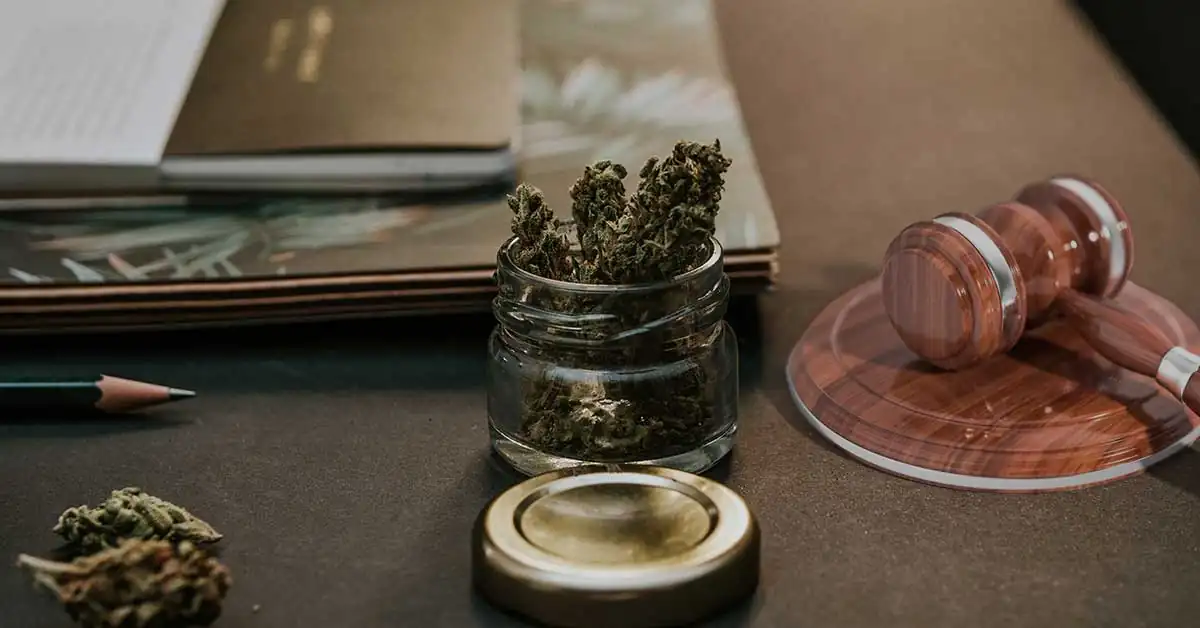For many growers and users the issue of cannabis legality requires them to navigate a very careful path as they pursue their interest in recreational or medical cannabis use. Unlike any other industry, cannabis is a sector where the lines between legality and illegality can suddenly change and are frequently blurred between countries, states and even regions within individual countries.
As of the end of 2020, the only countries where recreational cannabis is officially legal are Uruguay and Canada. However, this does not give the full picture, as a progressive rolling out of cannabis reforms at State level has transformed the legal landscape in the United States. Legalization in California alone has given approximately 39.5 million people the legal right to consume THC cannabis strains and the 2020 US election also saw 4 more states vote to legalize recreational marijuana (South Dakota, New Jersey, Montana and Arizona).
New Zealand was hotly tipped to join the list of countries where cannabis is legalized with the country holding an Autumn referendum. However, the motion to legalize marijuana was narrowly defeated (by 50.7% of the vote to 48.4%).
Countries Which Have Legalized Medical Cannabis
Perhaps more significantly, medical cannabis is legal in many more countries, including Australia, Germany, New Zealand and the UK. However, patient access varies hugely from country to country. In the UK, for example, patient groups have criticized the obstacles they face in securing a supply of medical cannabis. In most countries, medical cannabis must be prescribed by a doctor and patients are discouraged (and can be penalized) for growing at home.
Cannabis Legalization in Europe
While there is no confusion about where cannabis is illegal – the UK, Germany, France and Italy are all examples of European countries where cultivation and possession of the plant can lead to fines and even imprisonment – there is still some confusion about its status in other countries on the continent.
For example most people assume that cannabis is legal in the Netherlands although technically this is not the case (it is classed as an illegal drug, but tolerated to differentiate it from harder drugs, a government policy that stems from the 1970s). Spain and Portugal are also countries which have a cannabis friendly reputation, although there is no legislation to give the plant universal legal status.
In Spain, there is a distinction between private and commercial and in the past decade de-criminalization of marijuana consumption in a ‘private space’ has led to the proliferation of cannabis social clubs. In Portugal possession of small amounts is no longer a criminal offense, but officially repeat offenders can still face consequences in the form of drug addiction therapy.
The legality of cannabis is linked to THC (Tetrahydrocannabinol) in most countries. This cannabinoid, one of over 100 identified in the cannabis plant, is the psychoactive element of weed which produces the effect that drives most recreational use and interest in THC cannabis strains. In contrast, another cannabinoid, CBD (cannabinol), is legal in most countries in the form of extract (such as oils, droplets or balm) although the status of CBD ‘weed’ has become problematic in some countries (such as the UK and France) in the past couple of years.
Confused About the Legal Status of Cannabis?
The only certain thing about cannabis legality is the uncertainty that seems to surround it! The world is a jigsaw of national differences in cannabis legality which results from a patchwork of different government policies, social attitudes, policing priorities and media influences.
In each country, cannabis growers and cannabis consumers have to work within a unique legal framework, which is more often than not exclusive to that country. Even within an ‘official’ national cannabis policy, enforcement and strictness of penalties can vary significantly from region to region and between city and countryside.
For this reason cannabis seed companies advise customers, many of whom are first time cannabis growers, to check the legal regulations in their country before they plant their seeds. Nevertheless, the past decade has seen extraordinary changes in the legal status of cannabis, and based on industry experience so far, change can happen very suddenly.
Medical cannabis is legal in the following countries as of November 2020 (source Wikipedia):
Argentina , Australia, Barbados, Bermuda, Brazil, Canada, Chile, Colombia, Croatia, Cyprus, Czech Republic, Denmark, Ecuador, Finland, Georgia, Greece, Ireland, Israel, Italy, Jamaica, Lebanon, Lesotho, Lithuania, Luxembourg, North Macedonia, Malawi, Malta, Mexico, Netherlands, Norway, Poland, Portugal, Peru, Poland, Romania, San Marino, Saint Vincent, South Africa, Sri Lanka, Switzerland, Thailand, Turkey, Uruguay, Vanuatu, UK, USA (parts of), Zambia and Zimbabwe.


